Keep your garden thriving without harmful chemicals! These 22 proven natural pest control methods will help you protect your plants while supporting a healthy ecosystem. From companion planting to homemade sprays, discover safe and effective ways to keep pests at bay.
Neem Oil Spray
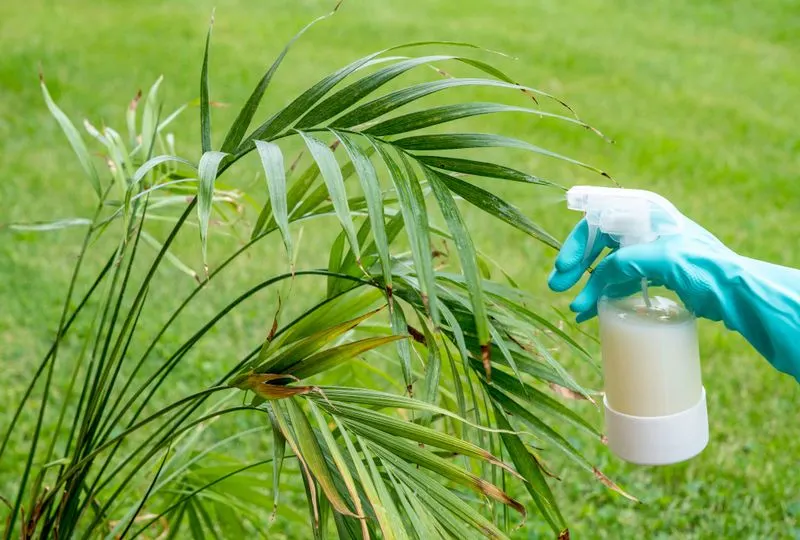
Derived from the seeds of the neem tree, this oil is a formidable ally against garden pests. Its natural compounds can disrupt the life cycle of insects, preventing them from maturing or reproducing. Apply as a foliar spray to target areas prone to infestation. With its systemic properties, neem oil is absorbed by plants, providing protection from within. It’s a safe option for organic gardening, especially when dealing with stubborn pests like aphids and spider mites. Regular application can significantly reduce pest populations, giving your plants the breathing room they need to flourish.
Companion Planting
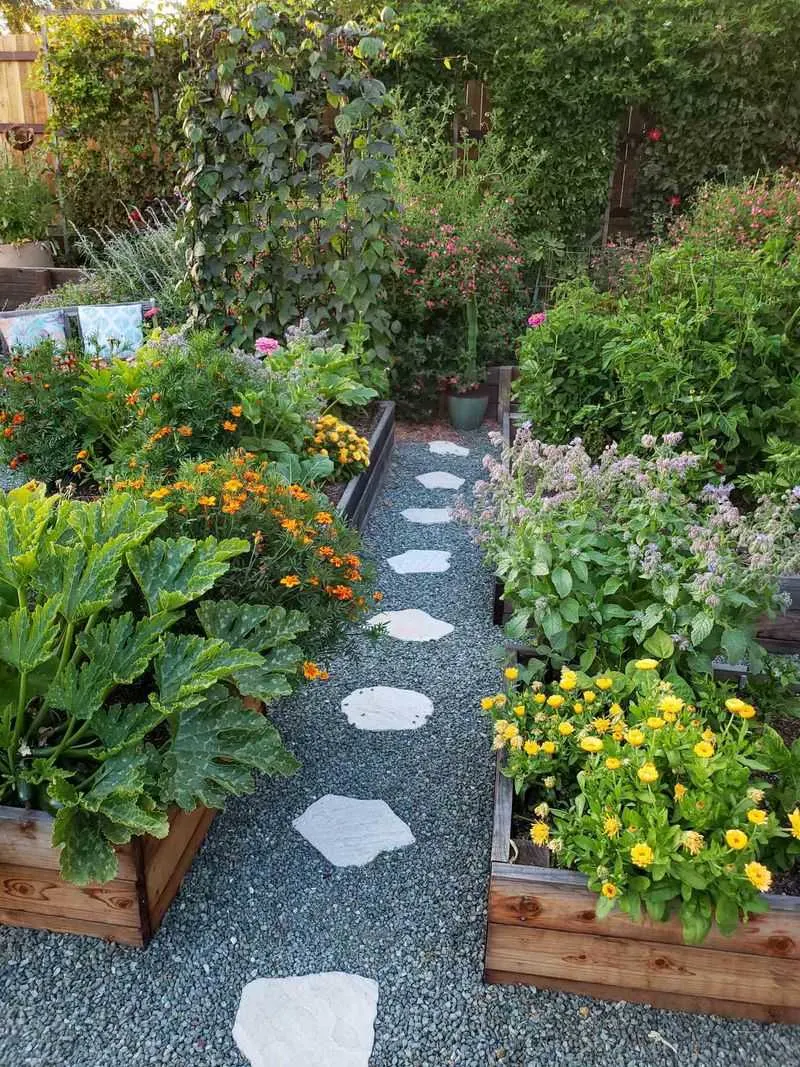
By strategically placing plants together, you can create a harmonious environment that naturally deters pests. Marigolds, for instance, release a scent that repels nematodes. Similarly, basil planted next to tomatoes can ward off flies. This method promotes biodiversity, encouraging beneficial insects while discouraging harmful ones. Not only does it help in pest control, but it can also enhance growth and flavor of your crops. It’s a win-win strategy that capitalizes on nature’s inherent balance, reducing the need for chemical interventions.
Diatomaceous Earth
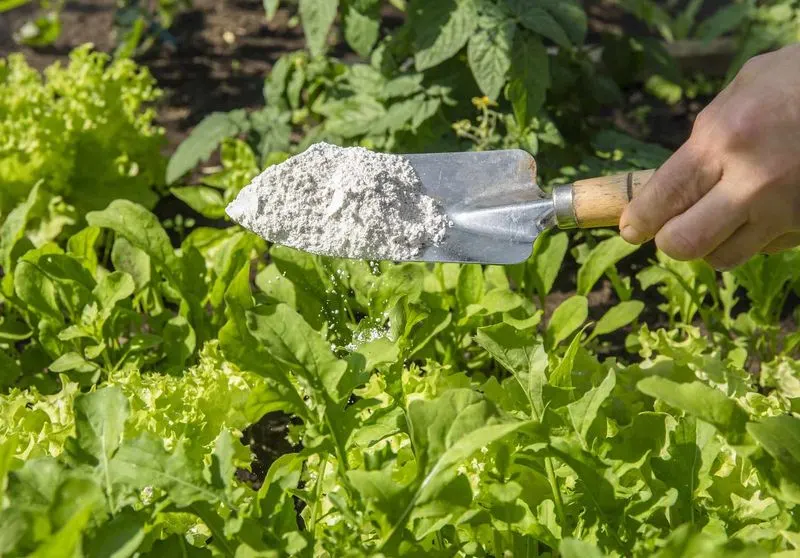
Composed of fossilized algae, this powder is a natural abrasive that can damage the exoskeleton of insects like slugs and beetles. When sprinkled around plants, it creates a physical barrier that pests avoid. It’s particularly effective against crawling insects, offering a non-toxic solution for gardens frequented by pets and children. Reapply after rain for continued protection. Its efficacy in pest reduction makes it a staple in sustainable gardening practices.
Garlic Spray

A homemade garlic spray can work wonders in deterring pests. Its strong odor acts as a natural repellent, keeping insects like aphids and caterpillars at bay. To make this spray, blend garlic cloves with water and strain into a spray bottle. Apply on infested plants, ensuring thorough coverage. This eco-friendly method is not only effective but also budget-friendly, allowing gardeners to tackle pest issues without harmful chemicals. Its potency lies in the simplicity and accessibility of its ingredients.
Hand Picking
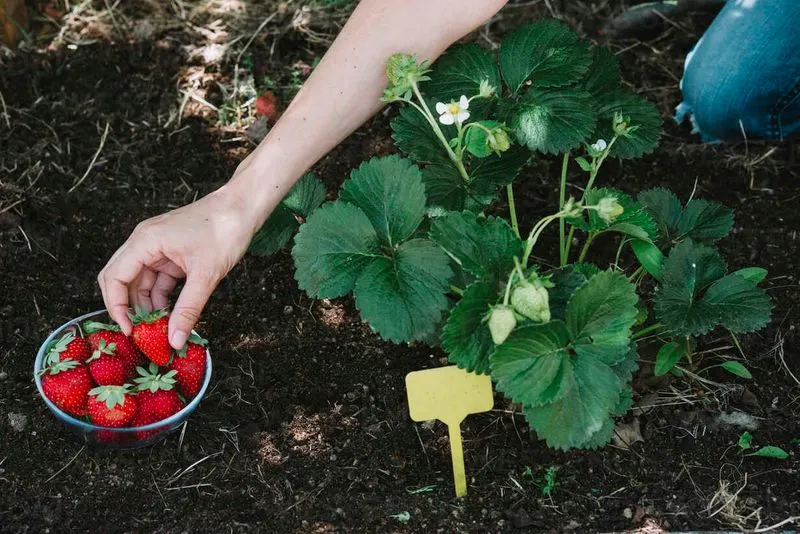
Sometimes the best solutions are the simplest. Regularly inspecting plants and manually removing pests can effectively keep their numbers down. This method is especially useful for larger pests like caterpillars and beetles. It allows gardeners to address infestations early on, preventing them from spreading. Use gloves to handle pests and ensure their removal is thorough. While time-consuming, this direct approach is reliable for those who prefer a hands-on method of natural pest management.
Essential Oils
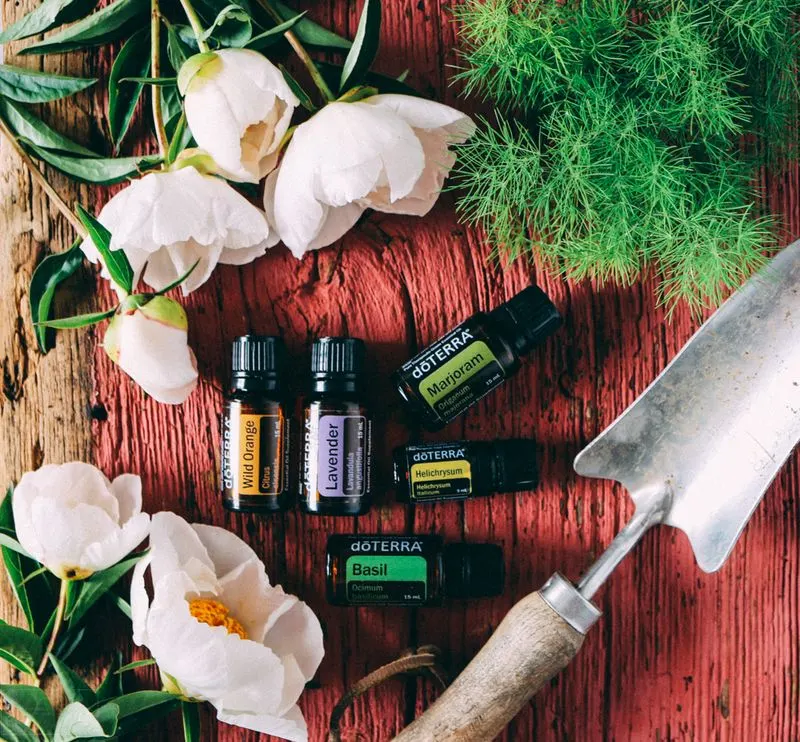
Certain essential oils can deter pests with their strong aromas. Peppermint oil, for instance, is known to repel ants, while lavender can keep moths away. Mix a few drops with water in a spray bottle and apply around garden beds or on affected plants. This method not only helps control pests but also introduces pleasant scents to your garden environment. It’s a versatile and natural option that supports a chemical-free gardening approach.
Insecticidal Soap
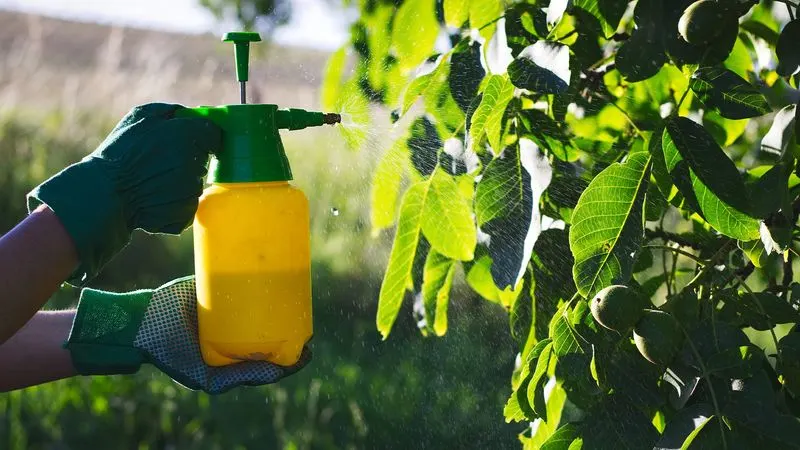
Designed to target soft-bodied insects like aphids and mealybugs, insecticidal soap is a non-toxic option that breaks down quickly, minimizing environmental impact. It’s particularly effective because it disrupts the cell membranes of pests, leading to dehydration. Spray directly onto infested areas for best results. This method is gentle on plants while being tough on pests, making it a valuable tool in maintaining garden health without harsh chemicals.
Beer Traps
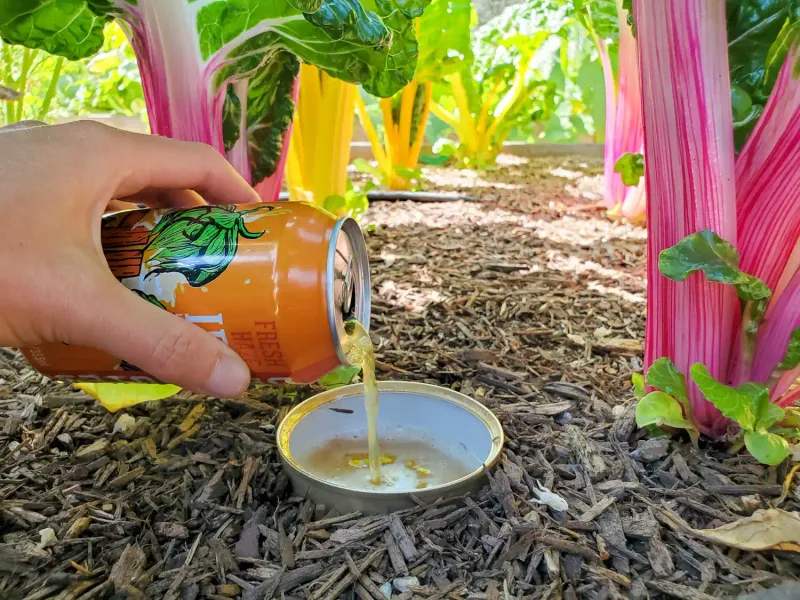
Utilizing beer traps is a classic tactic against snails and slugs. The yeast in beer attracts these pests, luring them into a container where they become trapped and drown. Set the trap by burying a shallow dish near affected areas and fill it with beer. This method is effective because it targets the pests’ natural attraction to yeast, offering a simple, yet ingenious solution to a common garden problem.
Beneficial Nematodes
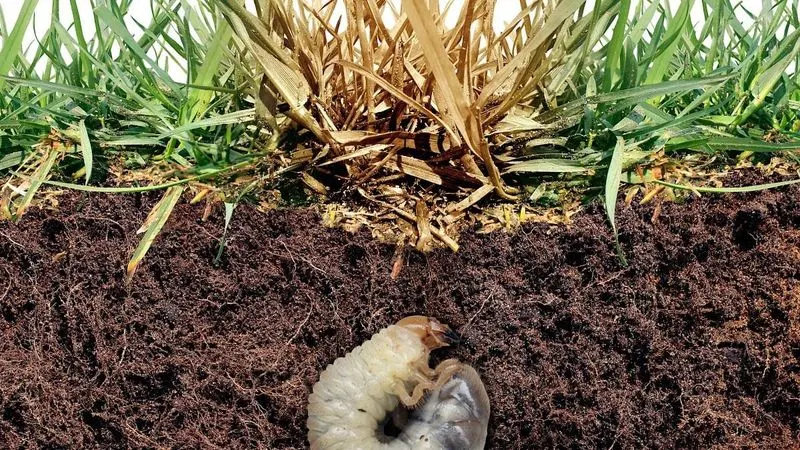
These microscopic organisms are natural predators of soil-dwelling pests like grubs and rootworms. When introduced to your garden, they seek out and destroy pests without harming beneficial insects or plants. Apply them to moist soil for optimal effectiveness. Beneficial nematodes are an excellent choice for those looking to enhance their garden’s natural pest control capabilities. They’re a testament to the power of nature’s unseen allies, working beneath the surface to maintain garden health.
Birdhouses
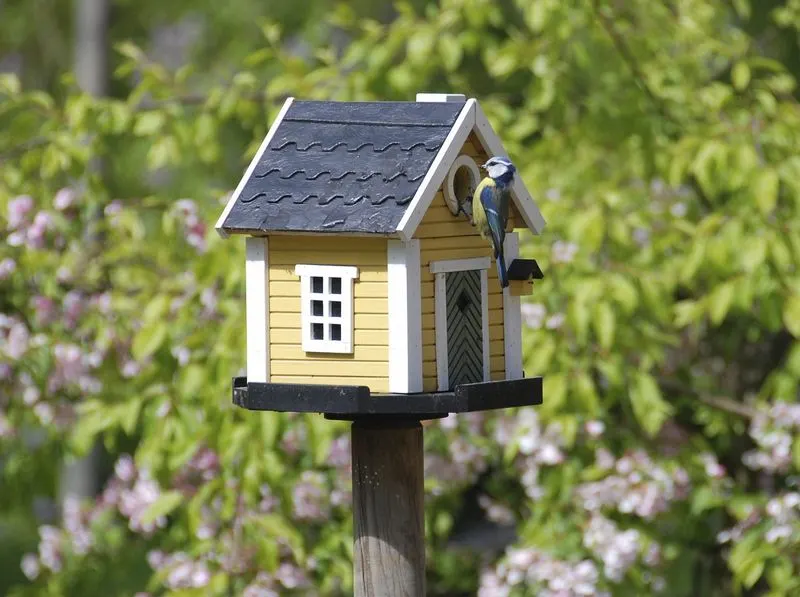
Encouraging birds to visit your garden can naturally reduce pest populations. By installing birdhouses, you provide birds with a habitat, enticing them to stay and feed on insects like caterpillars and beetles. This method promotes biodiversity and creates a vibrant garden atmosphere. It’s a passive pest control strategy that utilizes the natural food chain to maintain balance in your garden ecosystem. Birds, being natural insect predators, can be your garden’s best allies.
Floating Row Covers
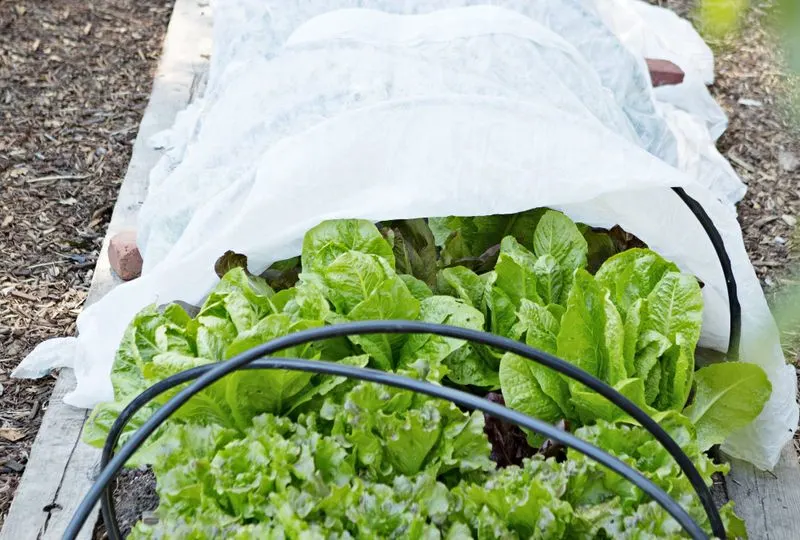
These lightweight fabrics are a barrier against pests while allowing sunlight and moisture to reach your plants. They are particularly effective during seedling stages, offering protection from insects and harsh weather. Row covers also help in extending the growing season by providing slight insulation. Use them to prevent pests like aphids and beetles from accessing your crops. This method is a proactive way to shield your garden from potential invasions.
Coffee Grounds
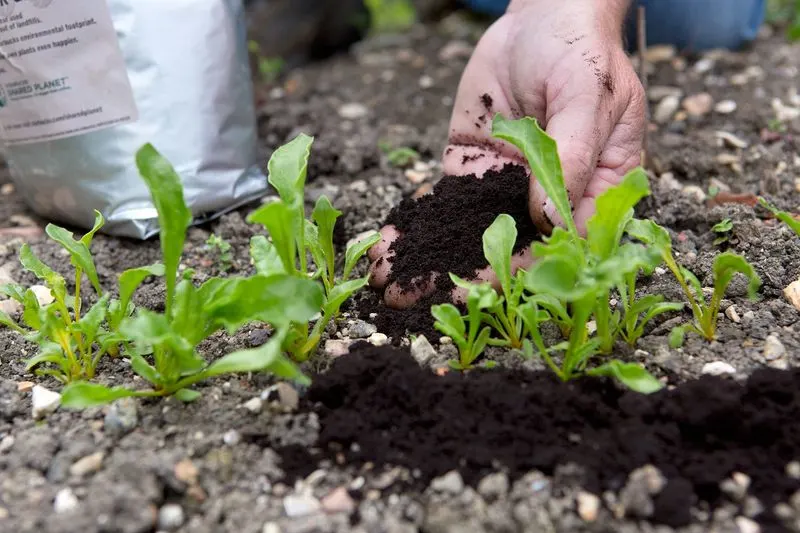
Repurposing coffee grounds in your garden can help deter pests like slugs and snails. The texture and aroma are unappealing to these pests, creating a natural barrier. Spread the grounds around plant bases for a dual benefit of pest control and soil enrichment, as they also improve soil structure. This eco-friendly method is an excellent way to recycle kitchen waste while enhancing your garden’s resilience.
Herbal Tea Sprays
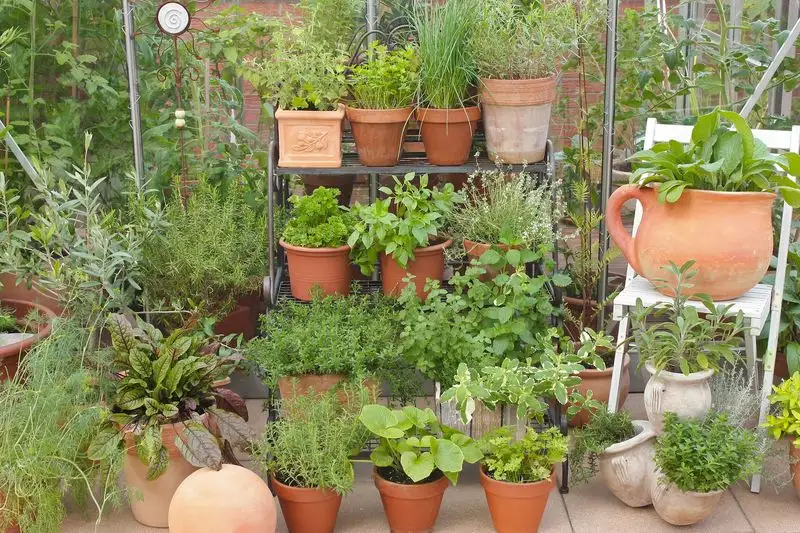
Brewed herbal teas, such as chamomile or peppermint, can be used as pest deterrents. Their natural properties repel certain insects while offering nutrients to plants. Spray the cooled tea onto affected areas, ensuring even coverage. This gentle method is particularly suitable for those who wish to avoid harsh chemicals. Herbal tea sprays are a testament to the effectiveness of traditional remedies in modern gardening practices.
Ladybugs
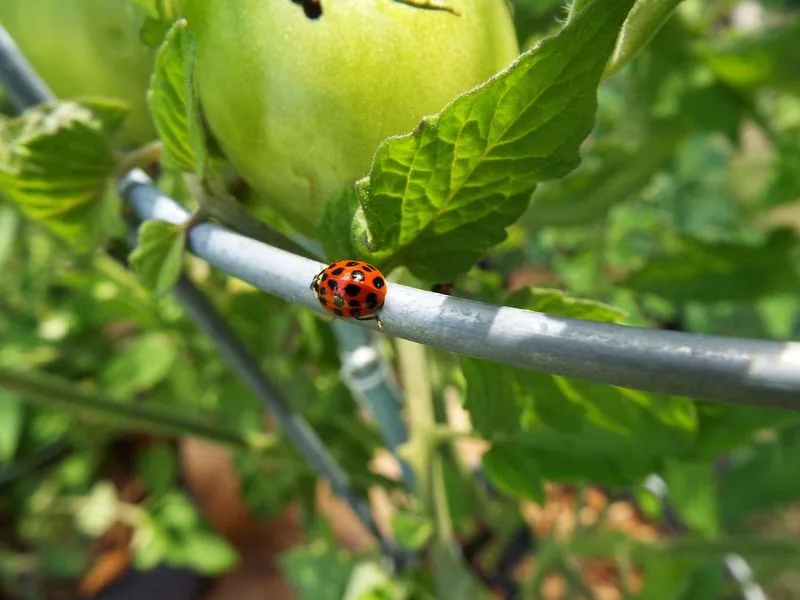
Releasing ladybugs into your garden can significantly reduce aphid populations. These colorful beetles are voracious predators, consuming hundreds of pests in their lifetime. They are easy to purchase and introduce to your garden, making them an accessible option for natural pest control. Ensure they have a conducive environment to thrive, which can be achieved by maintaining plant diversity. Ladybugs, as natural pest controllers, play a crucial role in maintaining the ecological balance in your garden.
Soap and Water Solution
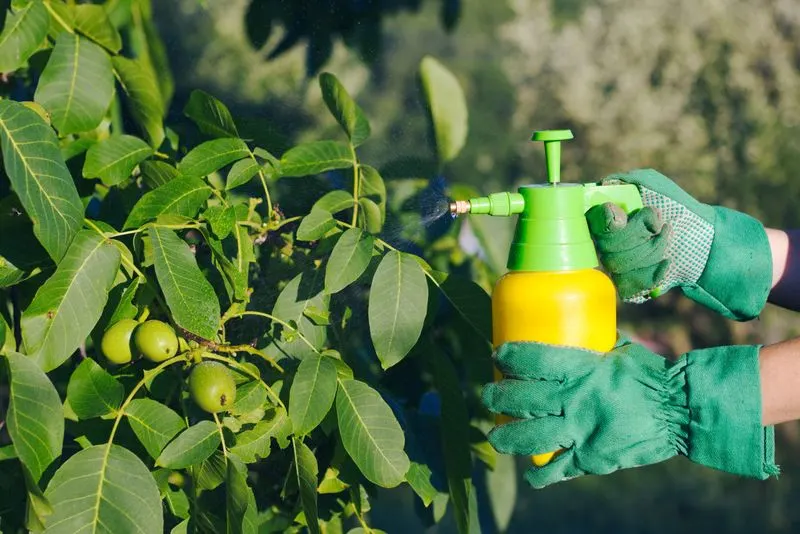
Combining soap and water creates a simple yet effective spray for tackling soft-bodied pests. The solution suffocates insects like aphids and spider mites upon contact. Use a mild liquid soap to avoid harming plants. This method is straightforward and sustainable, providing immediate relief from infestations. Regular application can keep pest numbers manageable, offering a chemical-free approach to garden maintenance.
Citrus Peels

Citrus peels can deter ants and other pests with their strong scent. Scatter them around your garden to create a natural barrier. They also enrich the soil as they decompose, adding nutrients to your garden beds. This method is a perfect example of how everyday kitchen waste can be repurposed in gardening, promoting a sustainable lifestyle. The dual functionality of citrus peels makes them a valuable addition to your pest control arsenal.
Wood Ash

Utilizing wood ash from your fireplace or barbecue can be an effective pest deterrent. It creates an alkaline barrier that many soft-bodied insects avoid. Sprinkle it around the base of plants to protect against slugs and snails. Wood ash also adds potassium to the soil, benefiting plant growth. This method showcases how garden resources can be maximized for dual purposes, enhancing both pest control and soil health.
Vinegar Spray

Vinegar acts as a natural herbicide and pest repellent. When diluted with water, it can be sprayed on weeds and around plants to deter insects like ants. Its acidity is unappealing to many pests, providing a natural line of defense. This method is an eco-friendly alternative to synthetic chemicals, offering gardeners a versatile tool for both pest and weed management. Ensure careful application to avoid plant damage.
Seaweed Mulch
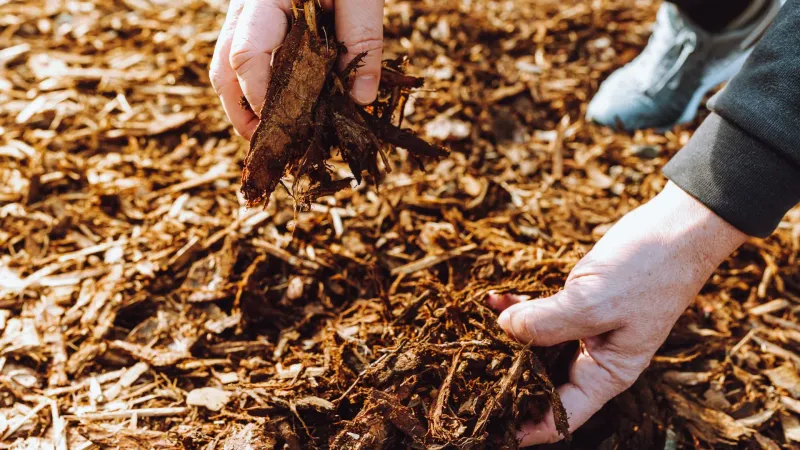
Seaweed is not only a rich source of nutrients but also a deterrent to pests. Its salty nature is off-putting to slugs and snails, making it an excellent mulch option. Spread it around your plants to create a protective barrier. As it breaks down, seaweed also improves soil health, contributing to a thriving garden ecosystem. This method highlights the synergy between nutrient enrichment and pest control.
Baking Soda Solution
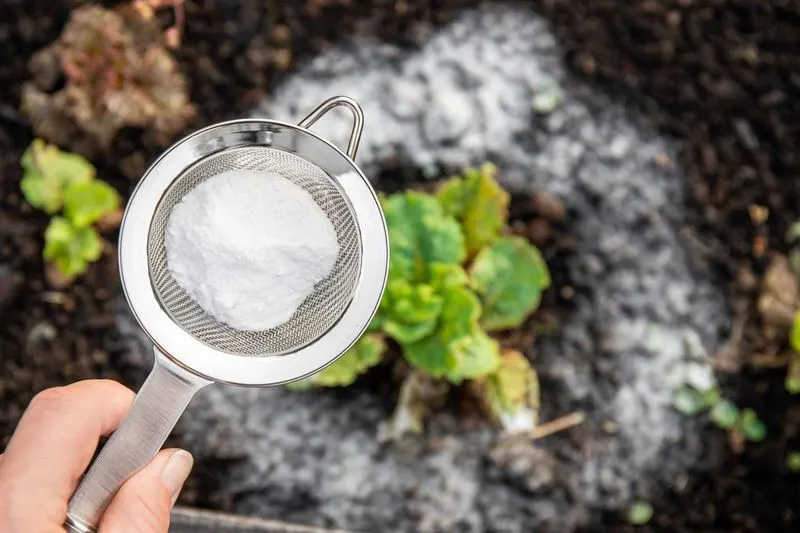
An effective remedy for fungal diseases and insect pests, a baking soda solution is easy to prepare. Mix it with water and a bit of soap to create a spray that tackles powdery mildew and repels insects. Apply it to affected plants, ensuring thorough coverage. This method underscores the versatility of household items in garden care, providing a non-toxic option for maintaining plant health. Regular use can help prevent disease spread.
Chili Pepper Spray
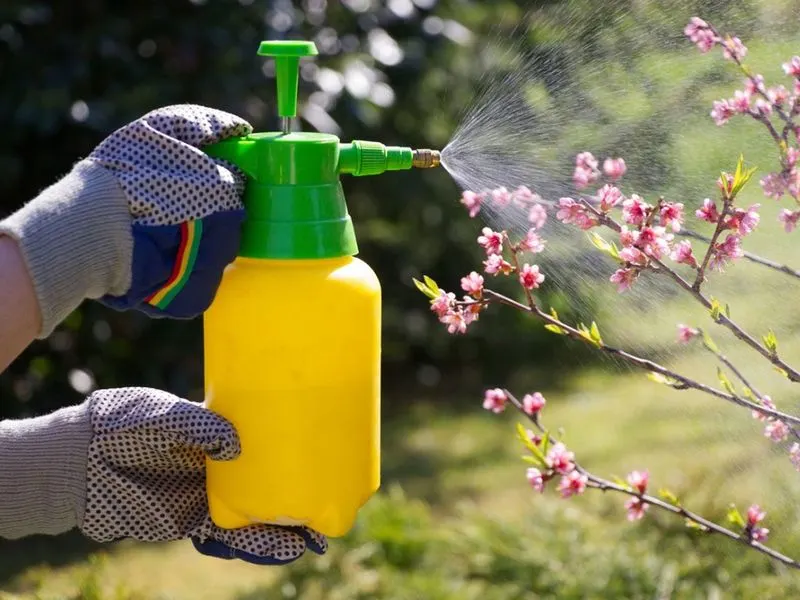
Chili peppers pack a punch when it comes to pest control. Their spicy compounds deter insects like aphids and caterpillars. Blend fresh peppers with water and strain into a spray bottle, then apply to plants affected by pests. This method is potent yet safe, offering a natural alternative to chemical pesticides. Its fiery nature makes it a formidable line of defense in maintaining a healthy garden.
Mulching
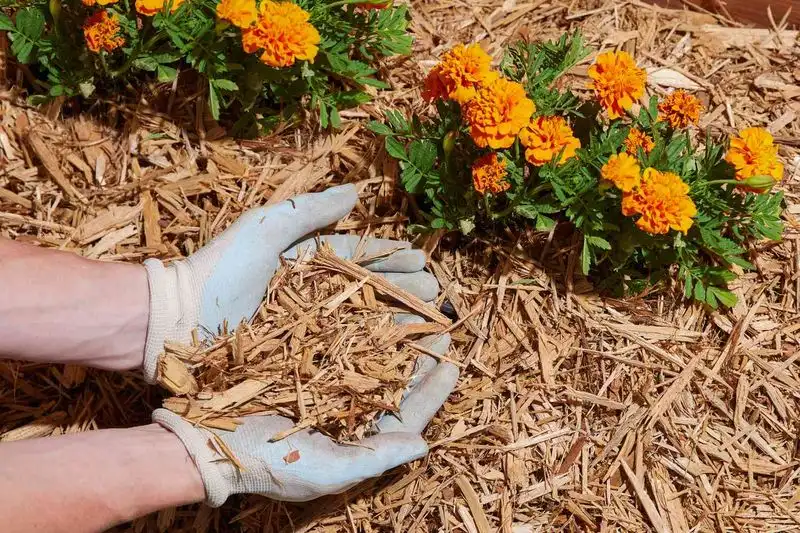
Mulching serves multiple purposes, from conserving soil moisture to suppressing weeds and pests. Organic mulch, such as straw or leaves, creates a barrier that deters pests like slugs. It also enhances soil fertility as it decomposes, supporting plant growth. This method is essential for sustainable gardening, ensuring your plants thrive in a supportive environment. By nurturing the soil, mulching indirectly contributes to robust pest control.

